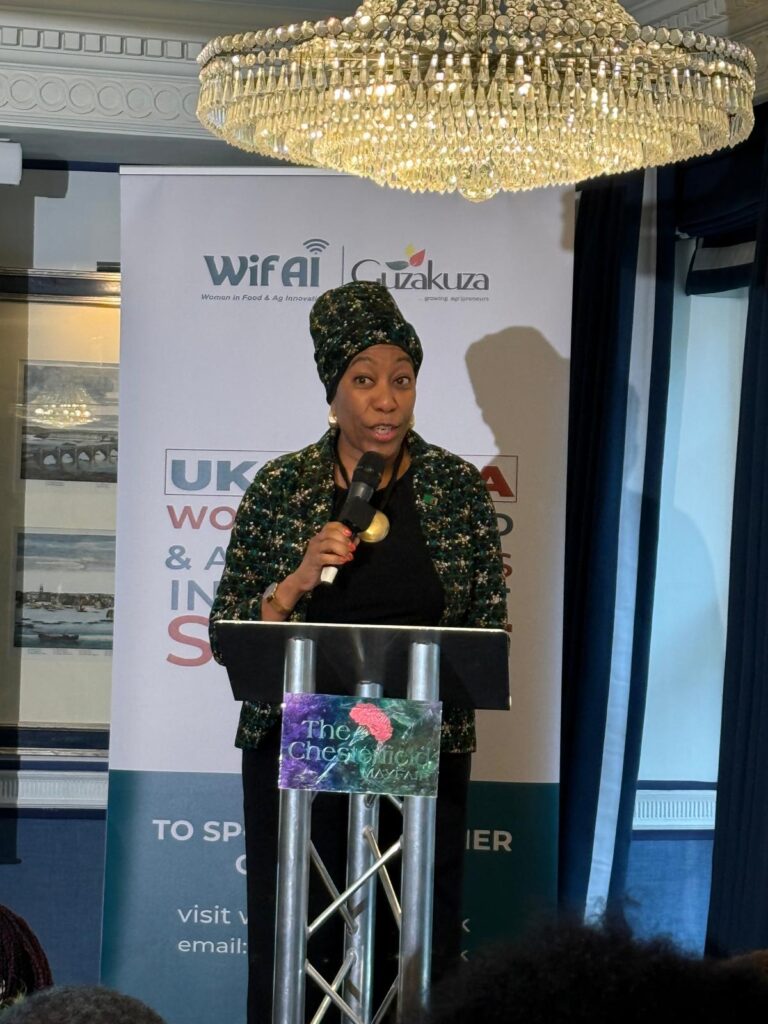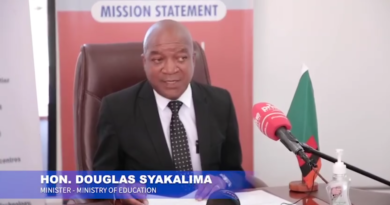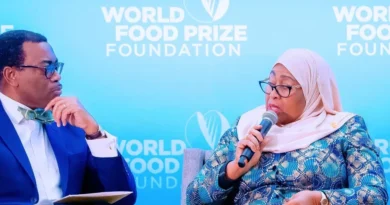Zambia’s UK Envoy Calls for Closing US$40bn Funding Gap for African Women Entrepreneurs
Zambia’s High Commissioner to the United Kingdom, Her Excellency Ms Macenje F. Mazoka, has appealed to governments, investors and development partners to take concrete steps to close the estimated US$40 billion financing gap faced by African women entrepreneurs.
She was speaking at the UK–Africa Women in Food and Agribusiness Investment Summit, held under the theme “Redefining Investment in Food and Agribusiness for Women.” The Summit provided a platform for women entrepreneurs to engage with investors, policymakers and development agencies, with the aim of expanding opportunities in food systems and driving transformative change.
The High Commissioner, who was accompanied by Zambia’s First Secretary for Trade, Ms Yvonne Zulu, delivered a keynote address on strengthening UK–Africa trade partnerships with a gender lens. She observed that although women are central to food production and community development, many continue to face structural barriers that limit their access to finance, markets and decision-making spaces.
“These challenges are not a reflection of women’s capacity, but of systemic constraints,” she said. “Women seek opportunity, not charity. When women have access to finance, technology and markets, they strengthen families, economies and entire nations.”
The High Commissioner highlighted Zambia’s commitment to women’s economic empowerment under President Hakainde Hichilema. She cited policy alignment through the Eighth National Development Plan and the National Gender Policy, along with practical support from the Zambia Development Agency, the Citizens Economic Empowerment Commission and the African Development Bank.
She also noted that Zambian women are excelling in horticulture, fisheries and agro-processing.
Partnerships with the United Kingdom, including the UK–Zambia Green Growth Compact and British International Investment, were recognised for promoting sustainable agriculture and increasing women’s participation in climate-smart value chains.
Ms Mazoka underscored the need to close the US$40 billion financing deficit by expanding blended finance, gender-responsive credit facilities and mentorship networks. She also emphasised the vital role of the African diaspora, especially women entrepreneurs in the United Kingdom, in fostering innovation and cross-border enterprise.
The Summit featured keynote speeches, panel discussions, policy forums and networking sessions. High Commissioner Mazoka also participated in a diplomatic round table on gender-smart agri-food investment, which called for greater inclusion of gender perspectives in agricultural policy and finance.
The Summit was preceded by a farm and factory tour on 28 October, showcasing real-world innovation, and concluded with a sightseeing and networking tour of London on 30 October.
In her closing appeal, Ms Mazoka encouraged participants to translate dialogue into action. She said that when women farmers gain equal access to land, finance, technology and markets, they not only strengthen their countries, but have the power to transform them.



